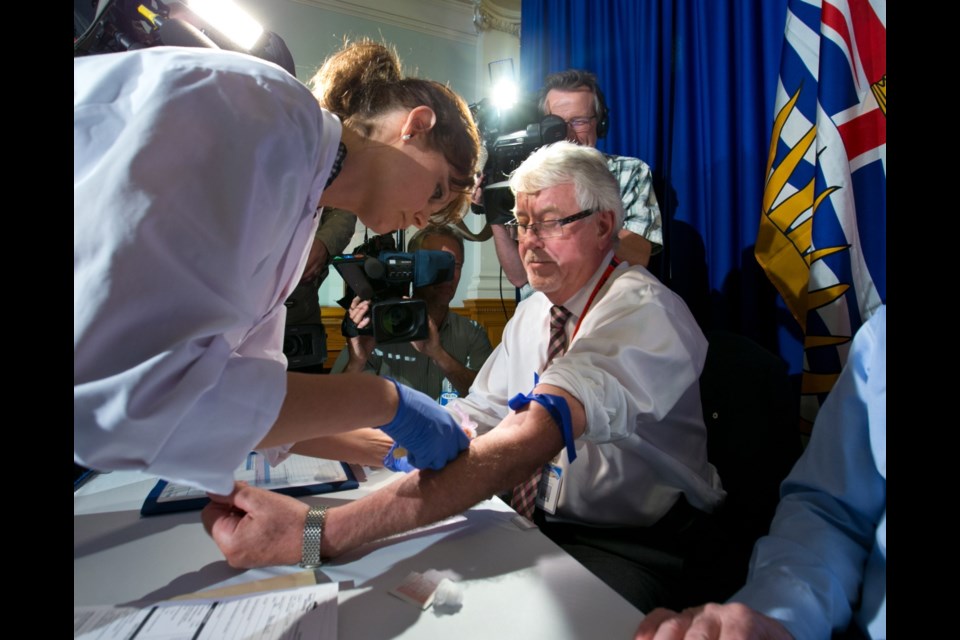All British Columbians will be offered a blood test for HIV/AIDS every five years as part of new testing guidelines that are the first of their kind in Canada.
Provincial health officer Dr. Perry Kendall announced the new guidelines today at the B.C. legislature.
Until now, only pregnant women have been routinely offered HIV testing. This program has “virtually eliminated” HIV transmission from mother to child in B.C., the Health Ministry stated.
B.C. Health Minister Terry Lake said today that British Columbia’s reputation as a global leader in the fight against HIV/AIDS is growing because of the development of programs and guidelines like these.
“Dr. Kendall’s guidelines will help remove the stigma some associate with HIV as B.C. continues to set a standard for care and treatment of this disease,” Lake said in a news release.
The new HIV testing guidelines require doctors to offer the HIV test to patients 18–70 routinely every five years and every year for higher-risk populations. Once age 70 or older, the patient should be offered the test if his or her HIV status is not known.
Any patient 18-70 with HIV symptoms, a worsening medical condition requiring lab work, at high risk of HIV infection, pregnant, or who requests an HIV test will also be afforded the test.
“The new guidelines are similar to recommendations made by expert bodies in the United States, United Kingdom and France,” said Dr. Kendall, in a statement. “They are evidence-based and were written by an expert panel of B.C. doctors from a number of clinical specialties.”
The B.C. Health Ministry said HIV-positive patients who are treated early can expect to live long and free of symptoms. Citing a survey in the British Medical Journal, the ministry points to findings that those whose disease was caught early and was treated with antiretroviral therapy could live as long as those without HIV. As well, caught early the infection has less chance to spread.
Dr. Julio Montaner, director of the B.C. Centre for Excellence in HIV/AIDS, said by making HIV testing more accessible, we will be better able to find and offer treatment to those in need.
“The treatment as prevention approach works best when we diagnose and treat HIV infection as early as possible,” Dr. Montaner, said in a news release.



